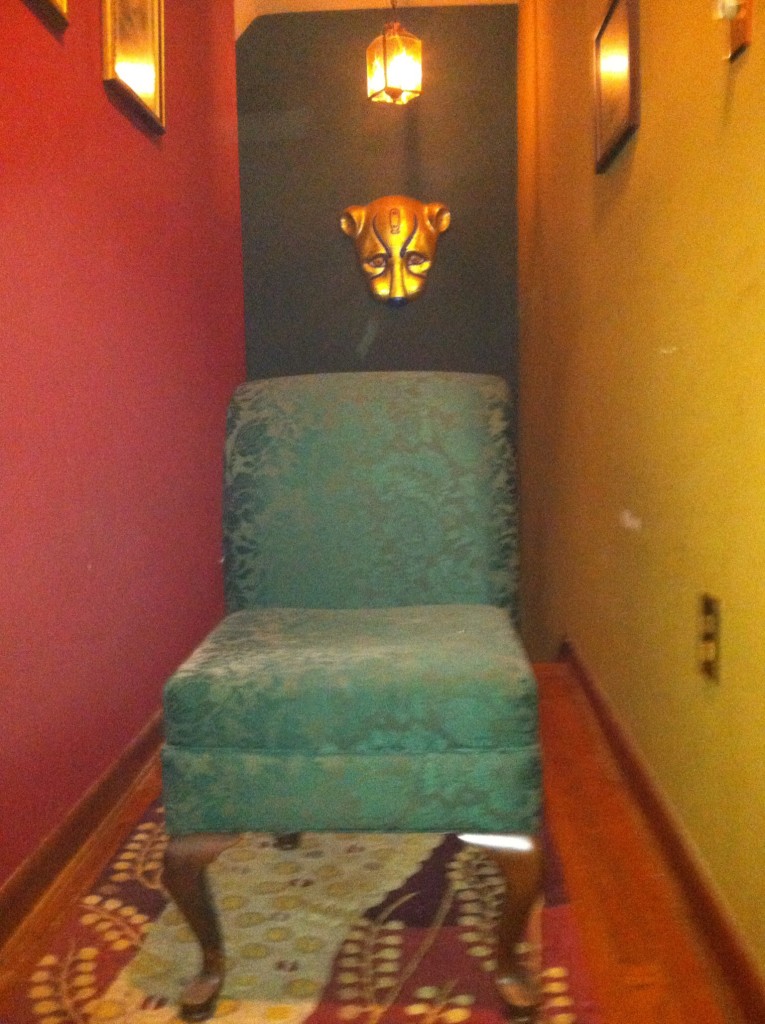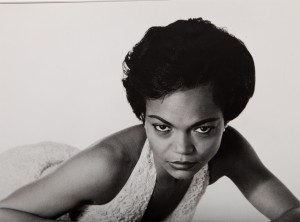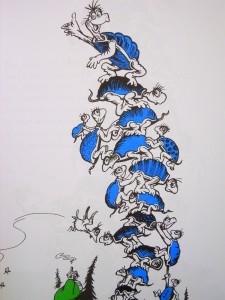
I knew I remembered this.
You know how conversations go unless you don’t. David Zincavage and I were having a fun back and forth on a post of mine about Gunter Grass on Facebook, which somehow got us on the topic of books that have been made into movies. (You can find the FB post below.) The Russians came up, which they sometimes unfortunately do, and my wife and I started trying to remember movies besides Dr. Zhivago that had been turned into usually terrible movies.
I had already confessed to Zincavage my knowledge of Russian literature was somewhere between zilch and zero, and I reinforced the point with my wife, who actually studied Russian in school, by acknowledging that all I remembered about War and Peace was Audrey Hepburn. Which is red blooded but hardly flattering of my learnedness. Was it Brando who played Napoleon, I asked. No, she told me. Then she leaped onto her iPad and informed me, Herbert Lom. A sickeningly awful movie she said unnecessarily, since my memory of only Audrey was already its own kind of review. Henry Fonda was in it too. Really? Didn’t even know they had Okies in Russia.
Anyway, and this is the conversation part, I adamantly insisted that Brando had played Napoleon at some point and Jean Simmons was there too. Jumping onto my iPad, I quickly found a movie called Desiree, which by golly I had also read the book version of, thus shoring up my lit cred immeasurably.
Thus emboldened, I told her about a breathtakingly complimentary rejection letter I had gotten from The New Yorker 40 years ago. It was a piece called “The Retreat from Moscow,” a journal of said sorrowful journey. The premise was that Napoleon was actually a woman, irritated by small discomforts while his troops starved and froze outside his domestically perfect tent. Why the hand inside the greatcoat. Bosom camouflage. “Funny,” the rejection letter said. “Try something else.”
My wife laughed. Women were off limits even back then. But I was happy, having steered the conversation back to my favorite subject, me. So I told her about other ways I had been cheerfully rejected in humor attempts that weren’t right for their times, long before anyone had even coined the term Political Correctness. How good can things get? I have a perfect opportunity to be whiny and self pitying with my wife AND take credit for it. Nirvana. If that’s a word.
Remember the gas crisis? No, you probably don’t. Back in the late seventies we had the second worst president in U.S. history. Name of Carter. He somehow managed to piss off the middle Eastern oil cartel and gas prices went through the roof, leading to such savage by-products as Pintos, Chevy Vegas, and if memory serves, AMC Gremlins. So I wrote a satire for my favorite literary publication, Car and Driver Magazine, acknowledging what they perversely would not, that all us motorheads were essentially grounded for the duration. It was titled “Carbon Monoxide in the Closet.”
Okay, it wasn’t exactly cheerful. It described an emerging phenomenon called “car bars,” in which sad guys like me gathered together to drink in mostly dark shotgun taverns plastered with signs advertising Castrol, Sunoco mega-octane gas, Roadrunner decals, and wall mounted Hooker headers. There was a jukebox, but the only choices were small-block Chevy, rat motor Chevy, and 340, 440, and 427 Hemi Mopar revs. And probably whatever Ford thought it had going at the time. Guys brought their own fetish parts to stroke in remembrance of times past, fenders, steering wheels, Koni shocks, alloy wheels, you name it. Because life as they knew it was over.
Well, it was THE most complimentary rejection letter I ever got. “Everybody here just loves this,” they said. Apparently they had all passed it around and fell on the floor laughing. They didn’t even mention why they rejected it. Because they didn’t need to. Even then you couldn’t make even an implied comparison to what was already becoming a protected group. I understood.
I’d already been there and done that. I’d been rejected with far less joviality as far back as college, when I submitted a work at the height of the radical era to the famously irreverent Harvard Lampoon. Well, it seemed funny to me at the time. What? My fraternity publication issued by Sigma Delta Sigma, replete with alumni notes about bomb mishaps and ads for such hot items as sweat stained work shirts worn by genuwine UAW members. The way the Lampoon worked, they returned your manuscripts with all the comments members had jotted on them.
There were a bunch of comments, all of them nasty. The one I remember most vividly was a single word: “Shit.” But there was a note from some misguided Poonie, who said, “You have talent. This is funny. Try again.” But, hey, it only takes one blackball to scotch you at the Lampoon. I tried again, just because I had to, but I never heard from them again.
How did we get all the way from Audrey Hepburn to the lowest years of the Harvard Lampoon and me stubbing my toe on the first rung of the ladder to the inferno known as political correctness? It’s called conversation. And my wife and I commit that particular sin all the time.

Why I love Tolstoy so much.

Why I no longer have “lampoon” in my vocabulary.
Next time maybe I’ll tell you about the short story I’ve always loved the most, the one about a man remembered by a 108 year old as “Poley,” whom he encountered as a child on an island off the lefthand coast of Africa. If you’re good. OR if you happen to own a copy of an anthology from the forties called “Bedtime Bonanza.” From a time when stories were meant to be entertaining, not overwritten plotless exercises in existential angst. If you’ve got that book, send it to me or tell me where I can buy my own copy.











































Recent Comments